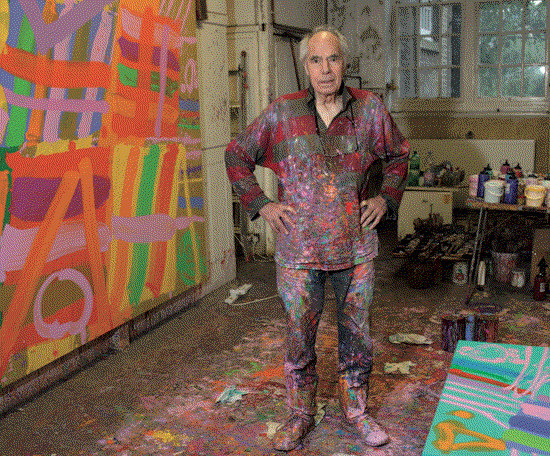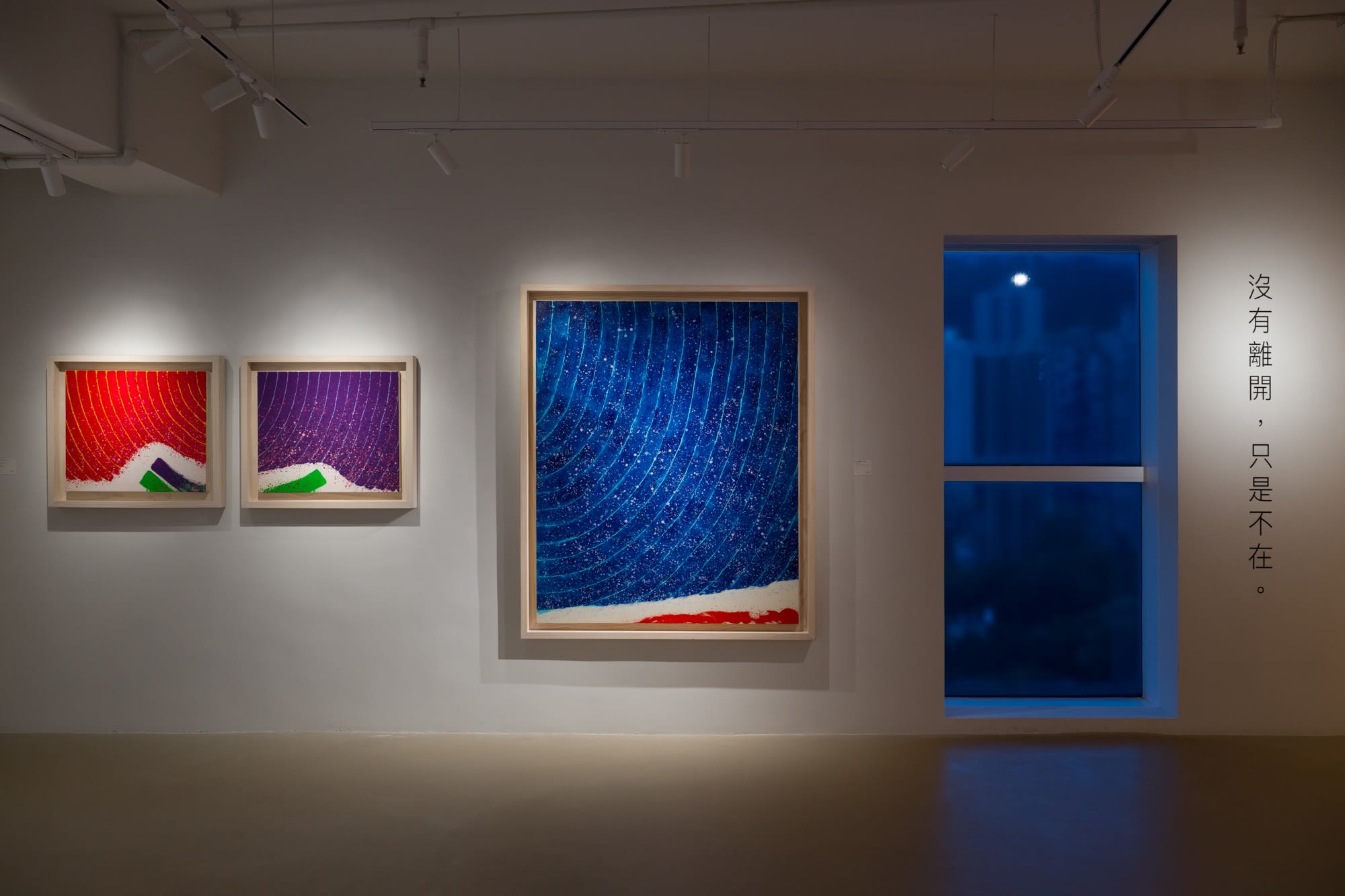-

Albert Irvin, Untitled, c.1970
-

-
Additional Content
-
Albert Irvin was a prolific British artist, best known for his exuberant paintings, watercolours, screenprints and gouaches. He was born in London and continued to live and work there throughout his life. His art focusses on capturing and exploring the experience of being in the world.
Early Years
The first major connection between painting and Irvin’s own life occurred in the early 1940s when he attended the Northampton School of Art. He had to cut short his studies when he joined the Royal Air Force in 1941 to serve as a navigator in World War II. After the war Irvin returned to his passion for art, enrolling in 1946 at Goldsmiths College in London. He graduated four years later with a National Diploma in Design. Irvin went back, as a teacher, to Goldsmiths in 1962 remaining there for over twenty years.
After World War II
Throughout the 1950s Irvin developed his unique style of literal meaning through his painting. In his early career he battled with the two alternatives of abstraction and figuration. It was not until the mid-1950s that Irvin finally moved away from relying on figures and social realism in his work and embraced an approach closer to metaphor and the abstract.
Irvin’s reputation began to swell in the art world as his paintings grew in merit, maturity of style, and value. He was invited to display his work at more and more exhibitions in both Britain and abroad. A new freedom to experiment also found its way into over his work as he ‘played’ with canvas size, colour, structure, shape, and composition.
1970s onwards
Later the artist began to experiment with the medium of his art. He changed from oil to acrylic in the early 1970s and had a short-lived foray into lithography in 1975. He then began a screenprinting career in 1980 with Advanced Graphics London. The collaborative approach of screenprinting, although a new and very different outlet from painting, still allowed Irvin to display many of his characteristic traits as an artist. He would quickly affirm his reputation as one of Britain’s foremost printmakers.
-
APPRECIATE AND COLLECT







